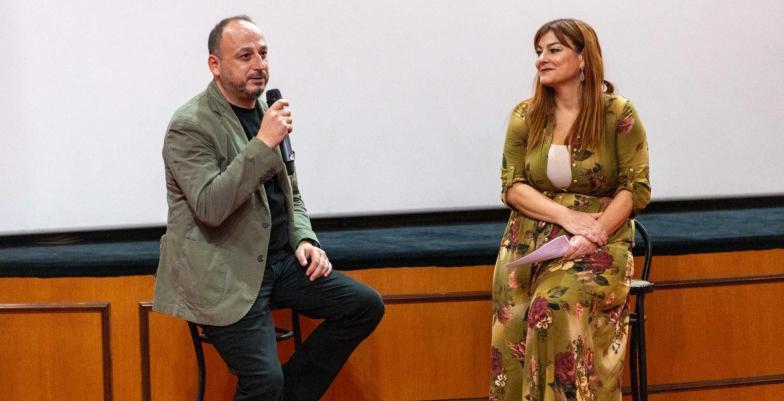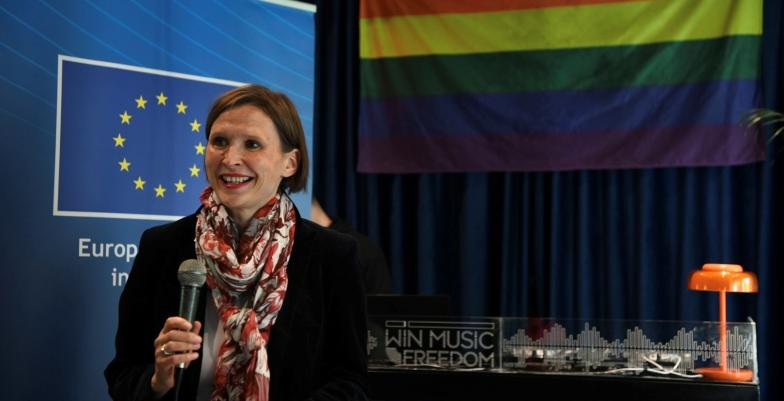Travel & Study
Travel & Study
Consular Protection for EU citizens
What does this EU fundamental right of EU citizens entail?
Consular protection is the help provided by a State to its citizens who are living or travelling abroad if they need assistance. Typically, consular protection can be provided in case of:
- A need for emergency travel documents.
- A serious accident or serious illness.
- Relief and repatriation in case of an emergency.
- Being a victim of crime.
- Arrest or detention.
- Death.
The responsibility to provide consular protection to EU citizens lies with EU Member States.
Yet, not every EU Member State has embassies or consulates in every State of the world. This means that some EU citizens are ‘unrepresented’, with no embassy or consulate from their Member State present, or no embassy, consulate or honorary consul there effectively in a position to provide consular protection in a given case. So, what happens if they are in need of assistance?
‘Unrepresented’ EU citizens are entitled to request help from the embassy or consulate of any other EU Member State. The other EU Member State must assist ‘unrepresented’ EU citizens on the same conditions as their own nationals.
This is one of the EU citizens' fundamental rights. It provides an external dimension to the concept of citizenship of the Union and strengthens the identity of the Union in third countries. The right is enshrined in Article 20(2)(c) and Article 23 of the Treaty on the Functioning of the EU, and in Article 46 of the EU Charter for Fundamental Rights.
This is particularly important in case of a consular crisis. In the EU context, a consular crisis is when the life, health or security of a large number of EU citizens are at risk or in danger.
This can be the case because of a natural disaster or large accident, or due to growing political instability.
How is the EU facilitating its application?
To facilitate the exercise of this right, the Council adopted Directive 2015/637, the ‘Consular Protection Directive’, in April 2015. The Consular Protection Directive aims at greater cooperation, coordination and solidarity between consular authorities.
For example, the Directive clarifies when and how EU citizens abroad have the right to seek assistance, for them and their families, from other EU Member States’ embassies or consulates. It also outlines how EU Member States should coordinate their assistance.
Notably, the Directive fully recognises and enhances the role of the EEAS and EU Delegations. EU Delegations must closely cooperate and coordinate with EU Member States embassies and consulates to contribute to local and crisis coordination.
The Council also adopted a Directive on an EU emergency travel document in June 2019. It provides additional rules to those set out in the Consular Protection Directive, for example by facilitating the issuing of a modernised and secure EU Emergency Travel Document to any unrepresented citizen whose passport or travel document has been lost, stolen or destroyed, or can otherwise not be obtained within a reasonable time. This Directive has entered into force but it is not yet applicable.
The Consular Protection Directive will be reviewed in the course of 2022.
What does this mean in practice?
You want to know how coordination and cooperation on consular matters between EU Member States and the EU can have an impact on the life of EU citizens? Here are three examples.
In 2019, the deadly attacks in Sri Lanka on Easter Sunday killed more than 250 persons and left more than 500 injured.
As part of a coordinated response, the EU and EU Member States joined forces to set up of an EU Help Desk at the Colombo airport. The Help Desk assisted EU citizens with a variety of issues, such as travel documents or guidance on the availability of return flights.
The UEFA European Football Championship (Euro 2020) was hosted by 11 different countries, of which three (Azerbaijan, Russia and the UK) were outside of the EU, and at a time when COVID-19 restrictions were still in place.
Where required, the EU Delegations engaged with the local authorities on behalf of the EU Member States to get details on the COVID-19 measures.
This enabled to better inform EU supporters attending games in Baku, Glasgow, London or Saint Petersburg. Such engagement also served to raise possible consular concerns such as the large-scale mobility restrictions for EU fans, pre-empting cases where consular assistance could be needed.
The sudden mobility restrictions after the outbreak of the COVID-19 pandemic left more than 600,000 EU citizens stranded abroad in early 2020.
In a unique exercise, the EU and its EU Member States joined forces to organise their repatriation. The EEAS had a key role in this effort, supporting Member States in their consular assistance to EU citizens through the network of Consular Correspondents in the EU Delegations.
For more information on the repatriation exercise, visit this page.
For the award for Good Administration honours granted to EEAS and the Commission for efforts to bring EU citizens home, see here.
What can EU citizens do to help?
EU citizens can take simple steps to make consular protection more effective:
- Following the travel advice issued by their Member State’s Foreign Ministry.
- Visiting the website of the EU Delegation for information on EU Member State presence in the country.
- Registering with their Embassy or Consulate and/or through dedicated platforms to signal your presence abroad.
Schengen visas
What are the categories of Schengen visas?
The Short-stay visa (Type "C"). This visa is issued for one, two or several visits. Its period of validity varies. It allows stays which do not exceed three months in any six-month period.
Airport transit visas (Type "A"). This visa is required for nationals of certain third countries who are flying to another third country but making a stopover or transfer in an airport of a Schengen State. During this transfer or stopover, the persons concerned must remain in the international transit area of the airport without entering the territory of the Schengen State in question.
Where can I apply?
If you intend to travel to one Schengen State, that State's consulate must deal with your application.
If you intend to travel to more than one Schengen State, the application must be dealt with by the Consulate of the main destination. The main destination is understood to be the destination where you intend to spend the longest time or where the main purpose of your intended journey is carried out.
Practical examples:
If you wish to travel around Schengen States for three weeks, spending two weeks in Germany and one in France, you should apply for the Schengen visa at the German consulate.
If it is not possible to define a "main destination" of your travel, you should apply for a visa at the Embassy/Consulate of the Schengen country which you will enter first during your trip.
The following Schengen States collect applications and issue visa in Pristina:
Austria and France (through the Embassy of Switzerland), Belgium, Denmark (through the Embassy of Norway), Estonia (through the Italian Visa Application Office), Finland, Germany, Greece, Hungary, Italy, Latvia (through the Embassy of Slovenia), Luxemburg and Netherlands (through the Embassy of Belgium), Norway, Slovenia and Switzerland.
If your country of destination is not in the list above, please refer to the section Contact details of Schengen States' consular representatives.
Where can I travel to with a visa issued by Schengen States?
Short stay visas issued by the following Schengen States in Kosovo passports allow you to travel to all Schengen States except Spain, Slovakia and Greece:
Austria, Belgium, the Czech Republic, Denmark, Estonia, Finland, France, Germany, Hungary, Iceland, Italy, Latvia, Lithuania, Luxembourg, Malta, the Netherlands, Norway, Poland, Portugal, Slovenia, Sweden and Switzerland.
The short stay visas issued by Spain, Slovakia and Greece are territorially limited to Spain, Slovakia and Greece respectively.
How much will I be charged for the visa fee?
All Schengen States charge €35 visa fee for short-stay visas, except: Austria, Czech Republic, Denmark, Estonia, France, Iceland, Italy, Latvia, Norway, Poland, Portugal, Spain and Switzerland. The visa fee charged by these countries is €60.
Generally the visa fee is not refundable irrespective of the final decision on the visa application.
How should I apply for a visa?
You should try to lodge the application well in advance of the intended trip, if possible, but no more than three months before the start of the intended visit.
Applicants may be required to obtain an appointment for the lodging of an application. The appointment shall, as a rule, take place within a period of two weeks from the date when the appointment was requested.
When lodging the application, you should:
- Present an application form. Please find here the common application form States available in three languages (Albanian, Serbian and English).
- Present a valid travel document.
- Present a recent (not older than 6 months), biometric-suitable, passport-size colour photograph.
- Allow the collection of fingerprints where applicable.
- Pay the visa fee.
- Provide supporting documents.
- Produce proof of possession of adequate and valid travel medical insurance
You may refer to the Schengen State of destination (see section Contact details of Schengen States' consular representatives) to get more information about the application process.
How long is the decision making procedure?
In principle, the decision should be taken within 15 calendar days after the application has been considered admissible. In individual case, the deadline may be extended up to a maximum of 30 calendar days.
You may refer to the Schengen State of destination (see section Contact details of Schengen States' consular representatives) to get more information about the issuance process.
How will the visa refusal be notified to me?
The refusal of the visa as well as the reasons on which the decision is based shall be notified by means of a standard form. You have the right to appeal the negative decision in accordance with the national law of the Schengen State that refused your application. The Schengen State concerned must indicate to you the specific procedures for appealing
European Union and Schengen Area Member States Embassies
|
Austria Embassy of Austria in Pristina: |
Belgium Belgian Office to Pristina: Immigration service: |
Czech Republic The Embassy of the Czech Republic: The Consular Department of the Embassy |
|
Denmark Consulate of Denmark in Skopje: |
Estonia Embassy of Estonia in Sofia: |
Finland Embassy of Finland in Kosovo: Visa applications for Finland are received by the Visa Application Office in Pristina |
|
France Embassy of France in Pristina: |
Germany Embassy of Germany in Kosovo: |
Greece Greek Liaison Office in Pristina: |
|
Hungary Embassy of Hungary in Kosovo: |
Iceland Consulate of Iceland in Sofia: |
Italy Embassy of Italy in Pristina: |
|
Latvia Embassy of Latvia in Ljubljana: |
Lithuania Embassy of Lithuania in Sofia: |
Malta Embassy of Malta in Vienna: |
|
The Netherlands Embassy of the Netherlands in Pristina: Xhemajl Berisha 12, Velania, 10000 Pristina, Kosovo. |
Norway Embassy of Norway in Pristina: |
Poland Embassy of Poland in Skopje: Embassy of Poland in Tirana: |
|
Romania Liaison Office of Romania in Kosovo: |
Slovakia Slovak Liaison office in Pristina: |
Slovenia Embassy of Slovenia in Pristina: |
|
Spain Embassy of Spain in Skopje: |
Sweden Embassy of Sweden in Pristina: Embassy of Sweden in Skopje: |
Switzerland Embassy of Switzerland in Pristina: |
Study Programmes
The people of Kosovo may benefit from numerous schemes as part of the Erasmus+ programme, famous for promoting student exchanges between European countries.
Erasmus+ does not only concern students, however, and aims more generally to boost skills and employability, including lifelong learning, through exchanges and cooperation between institutions.
Erasmus+ is designed to support countries that want to fulfil the potential of Europe’s human and social capital. There are projects concerning education, training, youth work and, for the first time, sports.
More information on Erasmus+ can be found on the Kosovo Erasmus+ Office website.








